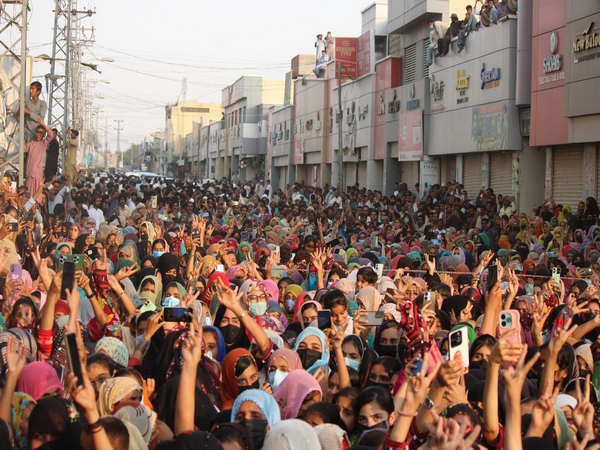Balochistan Shutdown Highlights Security Failures in Quetta Kidnapping Case
A province-wide shutdown occurred in Balochistan following the kidnapping of a 10-year-old in Quetta. Protests and road blockades disrupted daily life, with minimal progress from law enforcement. Opposition figures criticized the government's response, emphasizing broader security concerns in the region.

- Country:
- Pakistan
Balochistan witnessed an unprecedented shutdown on Monday as widespread protests erupted following the kidnapping of a 10-year-old boy in Quetta. The incident laid bare the failures of governance in Pakistan, exposing its inability to ensure basic domestic security. The shutdown, backed by political entities, traders, and civil society organizations, ground life to a halt across the province, affecting schools, courts, and means of transport.
According to Dawn, the boy, who is the son of a local jeweller, was abducted on November 15 by gunmen who intercepted his school van near Patel Bagh. Despite ten days passing, law enforcement authorities have yet to make headway in locating him, sparking outrage among the public. Educational institutions and the provincial high court remained closed, putting several hearings, including those related to the abduction, on hold.
Protestors effectively blocked vital highways connecting Balochistan to Sindh, Punjab, and Khyber Pakhtunkhwa using barricades and boulders. In Quetta, vehicular traffic was nonexistent as was railway service, including the Quetta-Chaman passenger train, due to a solidarity strike by transporters. In the Balochistan Assembly, opposition lawmakers lambasted the provincial government and its security apparatus for failing to secure the boy's release. Nasarullah Zerey from the Pashtoonkhwa Milli Awami Party, along with other protest leaders, advocated for continued demonstrations until the child's safe return.
Chief Minister Mir Sarfraz Bugti, when addressing the media, claimed all resources were being deployed to resolve the case, yet his statements were met with skepticism. The ongoing unrest underscores mounting public frustration over Balochistan's deteriorating law and order situation, a resource-rich yet overlooked region as noted by Dawn. Despite heavy security deployments to thwart violence, the incident raises pertinent questions regarding Pakistan's national priorities, particularly its emphasis on political strategies over public security.
While protests concluded peacefully, the glaring systemic failures in crisis management remain unresolved. For residents of Balochistan, Islamabad's seeming indifference continues to exacerbate tensions between the province and the central government.
(With inputs from agencies.)










